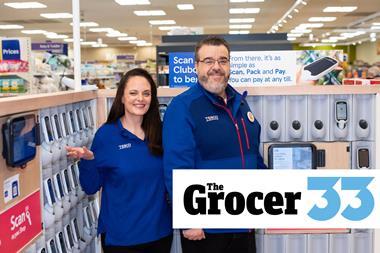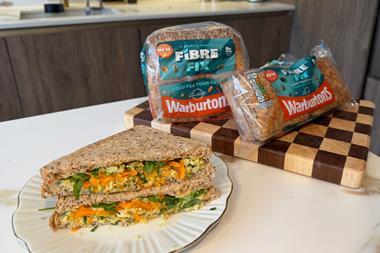
Veganism is on the rise year on year. Knowledge of our industrialised food system and a growing concern for animal welfare has catalysed a shift, but more recently a greater desire for optimal health has been a key driver. And in a social media age, nutritional knowledge is no longer restricted to certified experts.
While the number of vegans may appear tiny – only 2% of the UK population classifies themselves as such – society’s increasingly open mind to the prospect reflects the magnitude of the change. According to YouGov research, 16% of UK consumers currently identify as flexitarian. More than this, 48% of the UK said they plan to include more plant-based food or drink in their diet in the future, rising to 60% of under-44s [Mintel].
Just as more consumers are entering the category, so are brands. Each year brings a plethora of plant-based innovation and vegan launches, from meat and dairy alternatives to purely plant-powered recipes. Bloomberg projects the sales of the global plant-based retail market to be worth $162bn by 2030.
Despite growing mainstream appeal, there is still a significant chasm between demand and fulfilment. The vegan space has work to do in becoming more accessible. Signposting and wayfinding, as well as branded marketing and direction to retailers, will play a big role. The data shows veganism is not going away, and while innovation continues to flourish in support of the demand, the time has come for supermarkets to also adapt to these new shopper habits and reshape their experience.
Changing the system no doubt poses several complexities and challenges. The reality is retail margins are incredibly tight. One option is to continue to limit vegan food to an exclusive vegan aisle, but improve signage and clarity of signposting. Better separation and logic to the display of products mimics the logic and wider shopper experience at a total store level.
But the plant-based fixture must also become a desirable place to shop. Veganism, to many, remains alien. Misconceptions of being overly healthy or limited to clean eaters are blurred with ideas of products being fake and ultra-processed. By allowing these ideas to permeate, the aisle remains unknown, and ultimately unappealing, to non-vegan shoppers.
Another option is dual-siting products in their parent categories. Plant-based products can logically sit alongside their fish, meat or dairy counterparts as an alternative source of protein – particularly products such as chilled soup, functional drinks and ready meals, which flexitarian shoppers would already intuitively seek out in these sections of the store.
If retailers are serious about supporting the growth of the category, the shopper mission must be clear, considered and, most importantly, habitual. Fifty-seven per cent of consumers who have bought meat alternatives in the past six months would prefer they sit next to meat products than in a separate place in store [Mintel]. So by situating vegan products in parent categories, stores will provide something new to their shoppers and have a better chance of the incremental sales and excitement they strive for.
While every bit of the plant-based category is growing, the decline in the meat industry is not moving at the same rate. Meat and fish aisles are here to stay. But they are likely to be met with tightened legislation, tax increases and further government sustainability commitments. In anticipation of this, retailers that find ways to integrate plant-based alternatives stand a better chance of recruiting new consumers ahead of legislation.
At the same time, there is a risk of losing others. It’s likely some vegans would strongly object to having to shop within animal product aisles.
Despite their seemingly isolated position, current plant-based fixtures are successful as an introduction to vegan eating. To give this greater cut-through, it’s important to improve both the visibility and shopability of this area. We must better signpost when, why and how the ever-changing portfolio of vegan products can be eaten, as well as educate on the benefits of plant-based eating.
There is no clear solution for supermarkets wanting to adapt to the plant-based mindset. As veganism continues to boom and shopper habits evolve, a test and learn attitude is one real way to win. Supermarkets that do this stand a better chance of engaging and exciting shoppers, achieving incremental growth, and most importantly meeting the demands of a shifting society.



















No comments yet